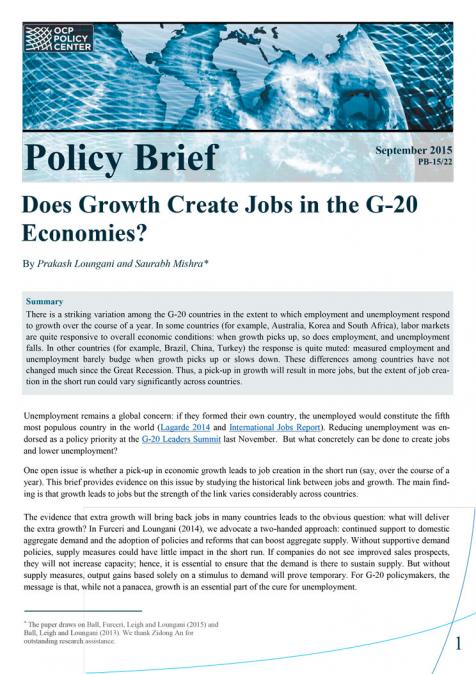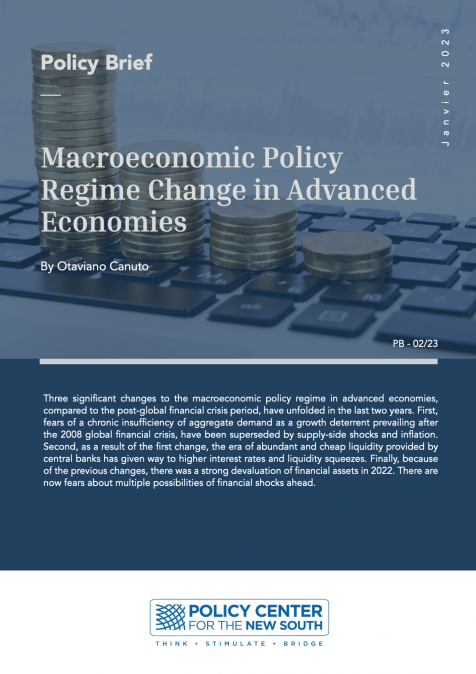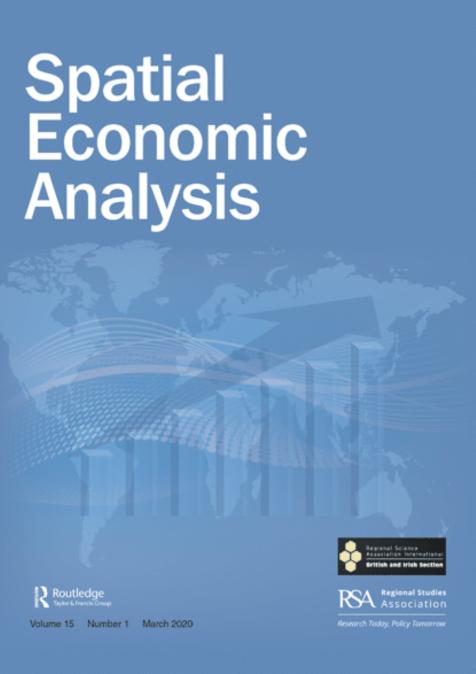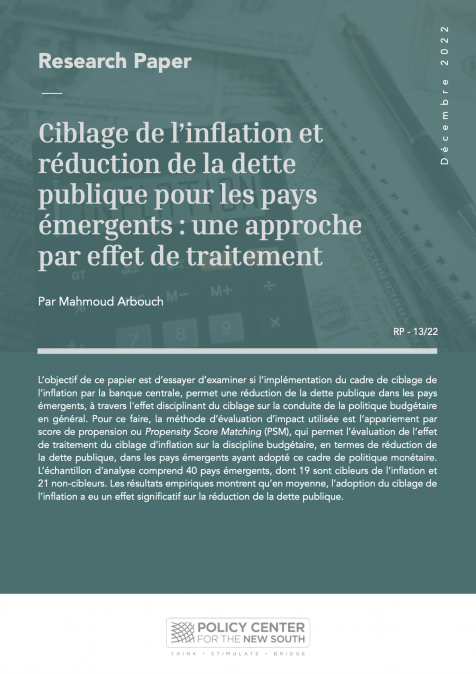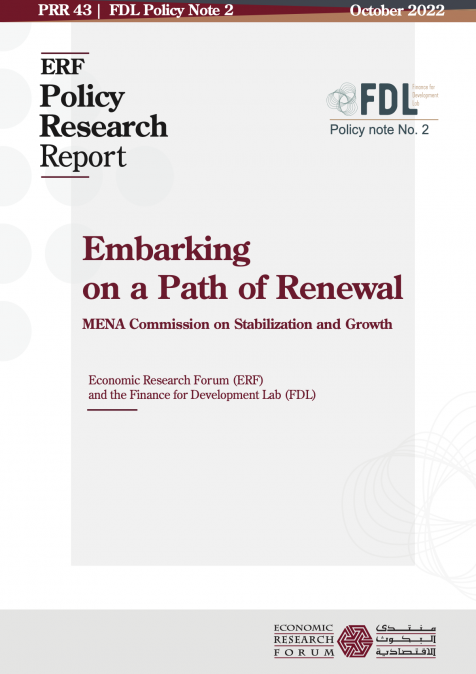Publications /
Policy Brief
Policy Brief
Does Growth Create Jobs in the G-20 Economies?
September 1, 2015
Les fonds souverains, objet de toutes les attentions au cours des années 2000, devraient voir leur rôle de « stabilisateur » de l’économie se renforcer dans les mois à venir, en raison de la chute du prix des matières premières. Ces véhicules d’investissement doivent cependant être coordonnés avec les outils traditionnels de la politique fiscale et ne peuvent affranchir les pouvoirs publics d’effectuer à plus ou moins long terme les ajustements budgétaires que ce nouvel environnement économique international impose.

